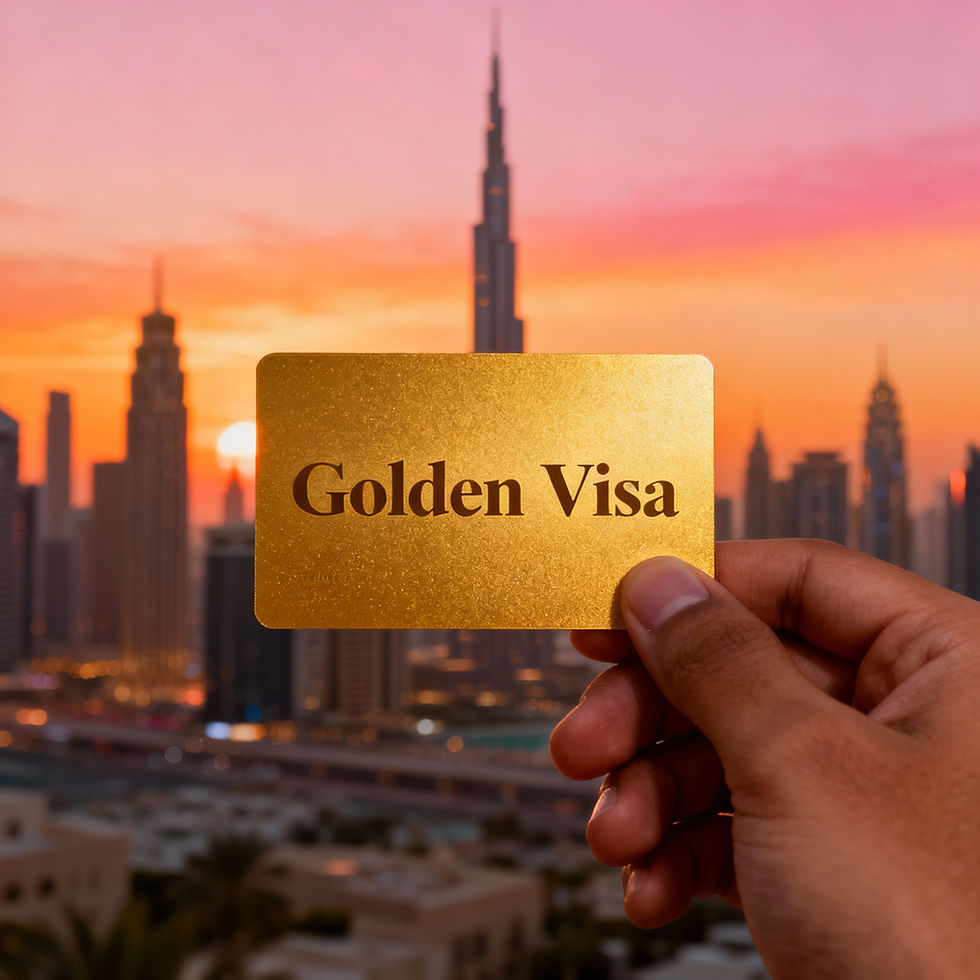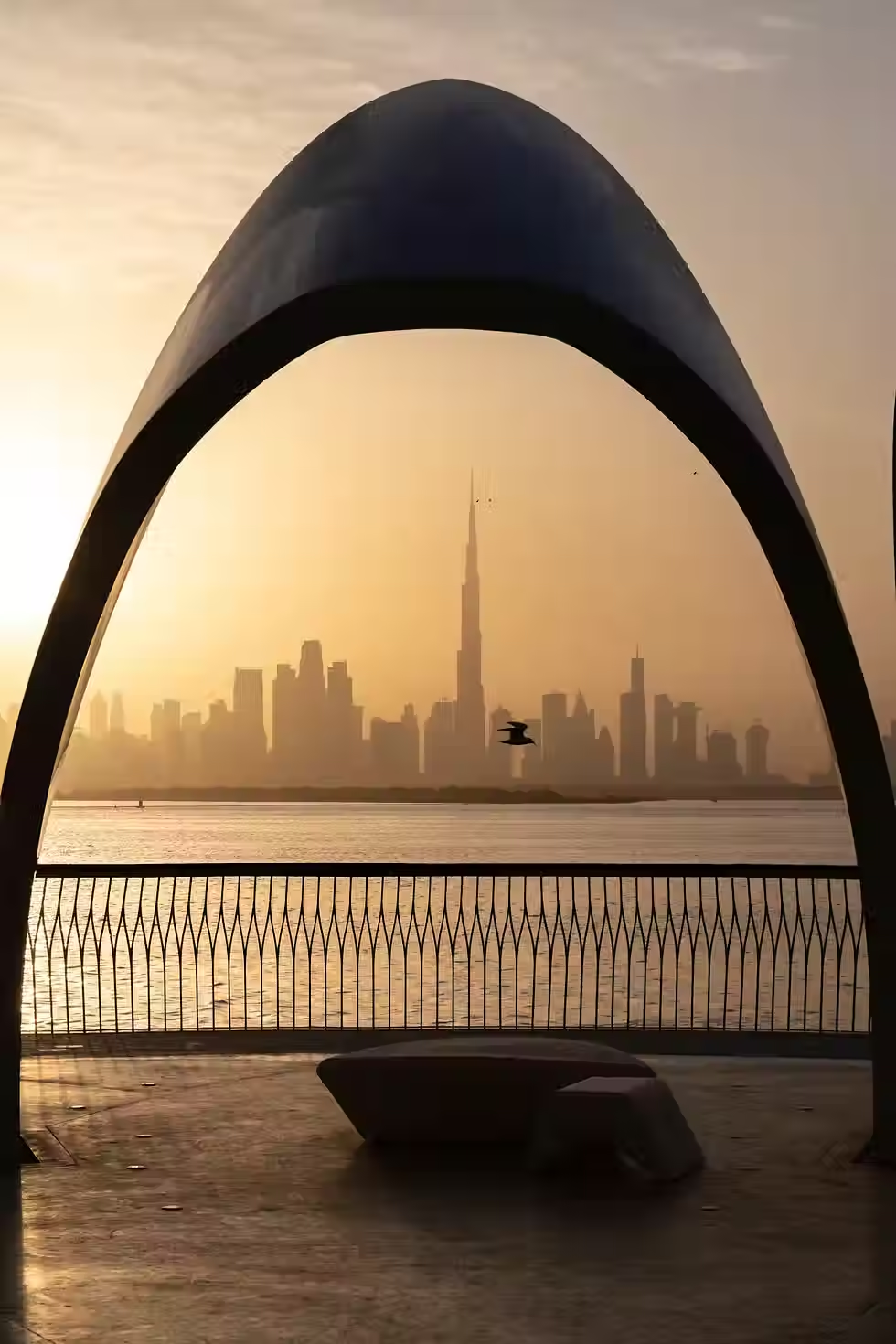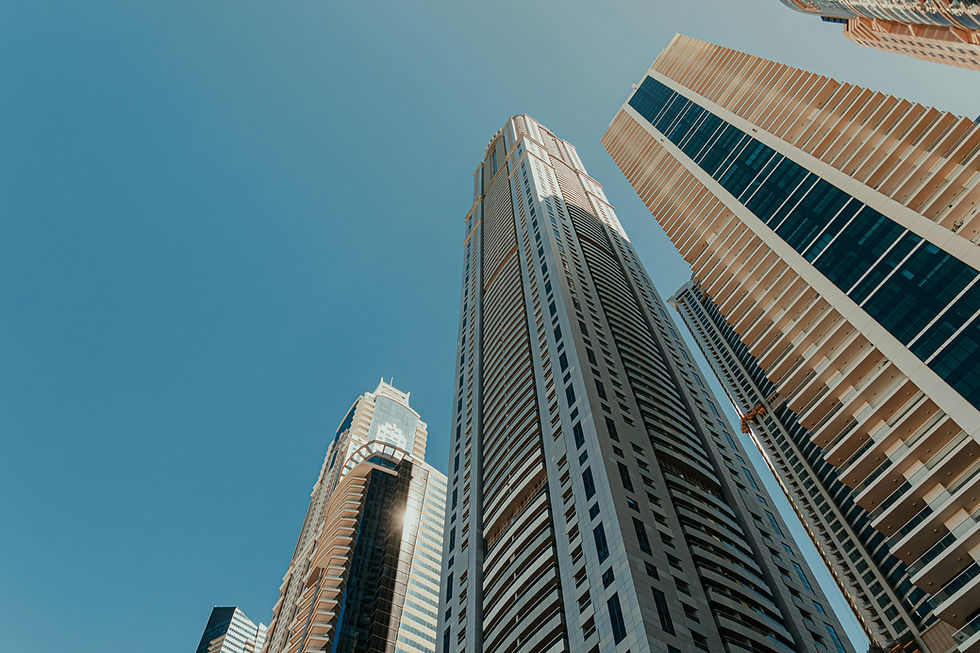Dubai Fractional Property Investment: How Indians Are Leading the UAE's Shared Ownership Revolution
- Staff Writer
- Oct 5, 2025
- 5 min read
The Dubai property market is witnessing a revolutionary shift toward fractional ownership, with Indian investors commanding an impressive 37% market share in this emerging sector. As traditional property prices soar beyond individual reach, fractional property investment offers a sophisticated pathway into Dubai's lucrative real estate market without the massive capital requirements of full ownership.

Understanding Fractional Property Investment
Fractional property investment allows multiple investors to co-own high-value properties, sharing both ownership costs and potential returns proportionally. Unlike traditional timeshares, fractional ownership provides actual property equity and the potential for capital appreciation alongside rental income distribution.
In Dubai's current market, where average property prices have risen over 50% in five years, fractional ownership democratizes access to premium locations and luxury developments that would otherwise require millions in individual investment.
The Indian Investment Phenomenon
Indian nationals lead Dubai's fractional property boom for several compelling reasons. The UAE's Golden Visa program, cultural familiarity, and Dubai's position as a regional business hub make property investment attractive for Indian professionals and entrepreneurs.
Recent data shows Indian investors comprise 37% of fractional property participants, driven by:
Currency Advantages: The AED's dollar peg provides stability against rupee fluctuations
Regulatory Familiarity: Dubai's transparent legal system resembles international standards Indians understand
Cultural Comfort: Large Indian expatriate communities reduce cultural barriers to investment
Business Connections: Many Indian investors maintain business interests requiring regular Dubai travel
Market Dynamics and Opportunities
Dubai's fractional property market has exploded alongside traditional real estate growth. Properties worth AED 5-20 million can now be accessed with individual investments starting from AED 250,000-500,000, making luxury real estate investment feasible for upper-middle-class investors.
Premium developments in Dubai Marina, Palm Jumeirah, and Downtown Dubai—previously accessible only to ultra-high-net-worth individuals—now welcome fractional investors seeking portfolio diversification and rental income opportunities.
The timing proves particularly favorable as Dubai's property market shows continued strength. With rental yields of 10-12% significantly exceeding global averages, fractional investors benefit from Dubai's exceptional rental market performance.
Investment Structures and Legal Framework
Dubai Land Department's innovative tokenization pilots through PRYPCO Mint are revolutionizing fractional property investment. These programs offer:
Blockchain-based ownership records ensuring transparent, secure ownership verification
Digital trading platforms allowing investors to buy and sell fractional shares
Professional management handling property maintenance, tenant relations, and income distribution
Regulatory oversight providing investor protection through government supervision
The legal structure typically involves Special Purpose Vehicles (SPVs) where investors hold shares corresponding to their ownership percentage. This arrangement provides clear ownership rights while simplifying management and exit procedures.
Entry Points and Investment Minimums
Current fractional property opportunities in Dubai offer various entry points:
Luxury Apartments: AED 250,000-750,000 for 5-15% ownership in premium developments
Commercial Properties: AED 500,000-1,500,000 for office or retail space ownership
Villa Developments: AED 750,000-2,000,000 for luxury residential properties
Mixed-Use Projects: AED 400,000-1,200,000 for diversified property portfolios
These minimums make Dubai property investment accessible to Indian professionals, business owners, and investors who previously couldn't participate in the emirate's property boom.
Due Diligence and Risk Considerations
Successful fractional property investment requires thorough due diligence beyond traditional property analysis:
Developer Reputation: Established developers like Emaar, DAMAC, and Nakheel offer more secure fractional opportunities than smaller, unproven companies.
Property Location: Prime locations in established areas provide better rental yields and capital appreciation prospects than emerging or peripheral developments.
Management Structure: Professional property management companies ensure optimal rental income and proper maintenance, crucial for fractional ownership success.
Exit Strategy: Understanding secondary market liquidity and exit mechanisms before investment prevents future complications.
Legal Documentation: Comprehensive review of ownership agreements, fee structures, and profit-sharing arrangements protects investor interests.
Financial Returns and Performance
Recent fractional property investments in Dubai have delivered impressive returns:
Rental Yields: 8-12% annually distributed among fractional owners
Capital Appreciation: 15-25% annually in prime locations during 2023-2025
- **Tax Efficiency**: UAE's zero capital gains tax maximizes investor returns
Currency Stability: AED's dollar peg protects against currency volatility
However, past performance doesn't guarantee future results, and investors should consider market cycles and economic factors affecting property values.
Technology Integration and Innovation
Dubai's fractional property sector leads globally in technology adoption. Blockchain-based ownership records eliminate traditional paperwork while smart contracts automate rental distribution and management fees.
Mobile applications allow investors to:
- Monitor property performance in real-time
- View rental income distributions
- Track capital appreciation
- Access property management updates
- Execute secondary market transactions
This technological sophistication attracts tech-savvy Indian investors familiar with digital investment platforms.
Regulatory Environment and Investor Protection
The UAE government actively supports fractional property investment through:
RERA Regulation: Real Estate Regulatory Agency oversight ensures market integrity
DLD Innovation: Dubai Land Department's tokenization initiatives provide regulatory framework
Investor Protection: Clear legal structures protect fractional owner rights
Dispute Resolution: Established mechanisms handle ownership and management disputes
These protections provide Indian investors confidence in Dubai's property investment environment.
Tax Implications for Indian Investors
Indian residents must consider tax obligations in both jurisdictions:
UAE Tax: Zero capital gains and rental income tax in Dubai
Indian Tax: Potential tax liability on global income for Indian residents
Double Taxation: Treaties between India and UAE prevent double taxation
TDS Compliance: Proper documentation ensures tax treaty benefits
Professional tax advice helps optimize investment structures and ensure compliance with both countries' requirements.
Investment Process and Documentation
Fractional property investment in Dubai typically involves:
1. Platform Registration: Enrolling with approved fractional ownership platforms
2. Property Selection: Choosing investments based on location, yield, and growth prospects
3. Legal Review: Understanding ownership agreements and fee structures
4. Funding: Transferring investment funds through approved banking channels
5. Ownership Registration: Completing Dubai Land Department registration processes
Future Outlook and Market Evolution
Dubai's fractional property market is positioned for significant growth. Government support through tokenization initiatives, increasing international investor interest, and Dubai's continued economic diversification suggest sustained market expansion.
The planned introduction of crypto payment options and enhanced digital platforms will likely attract additional international investors, potentially increasing competition but also market sophistication.
Practical Recommendations for Indian Investors
Start Small: Begin with smaller investments to understand market dynamics before larger commitments
Diversify: Spread investments across multiple properties and locations to reduce risk
Professional Guidance: Engage qualified legal and financial advisors familiar with cross-border investment
Market Research: Understand Dubai's property cycles and economic drivers affecting real estate
Long-term Perspective: Fractional property investment works best as medium to long-term strategy
Conclusion
Dubai's fractional property investment market offers Indian investors unprecedented access to one of the world's most dynamic real estate markets. With Indians leading participation and government support for innovative ownership structures, this sector presents compelling opportunities for portfolio diversification and wealth building.
Success requires understanding both opportunities and risks, proper due diligence, and realistic expectations about returns and market cycles. For Indian investors seeking international property exposure without massive capital requirements, Dubai's fractional property market represents a sophisticated, regulated pathway into global real estate investment.
As Dubai continues its transformation into a global financial and business hub, fractional property ownership provides Indian investors a strategic foothold in one of the world's most promising property markets.




Comments